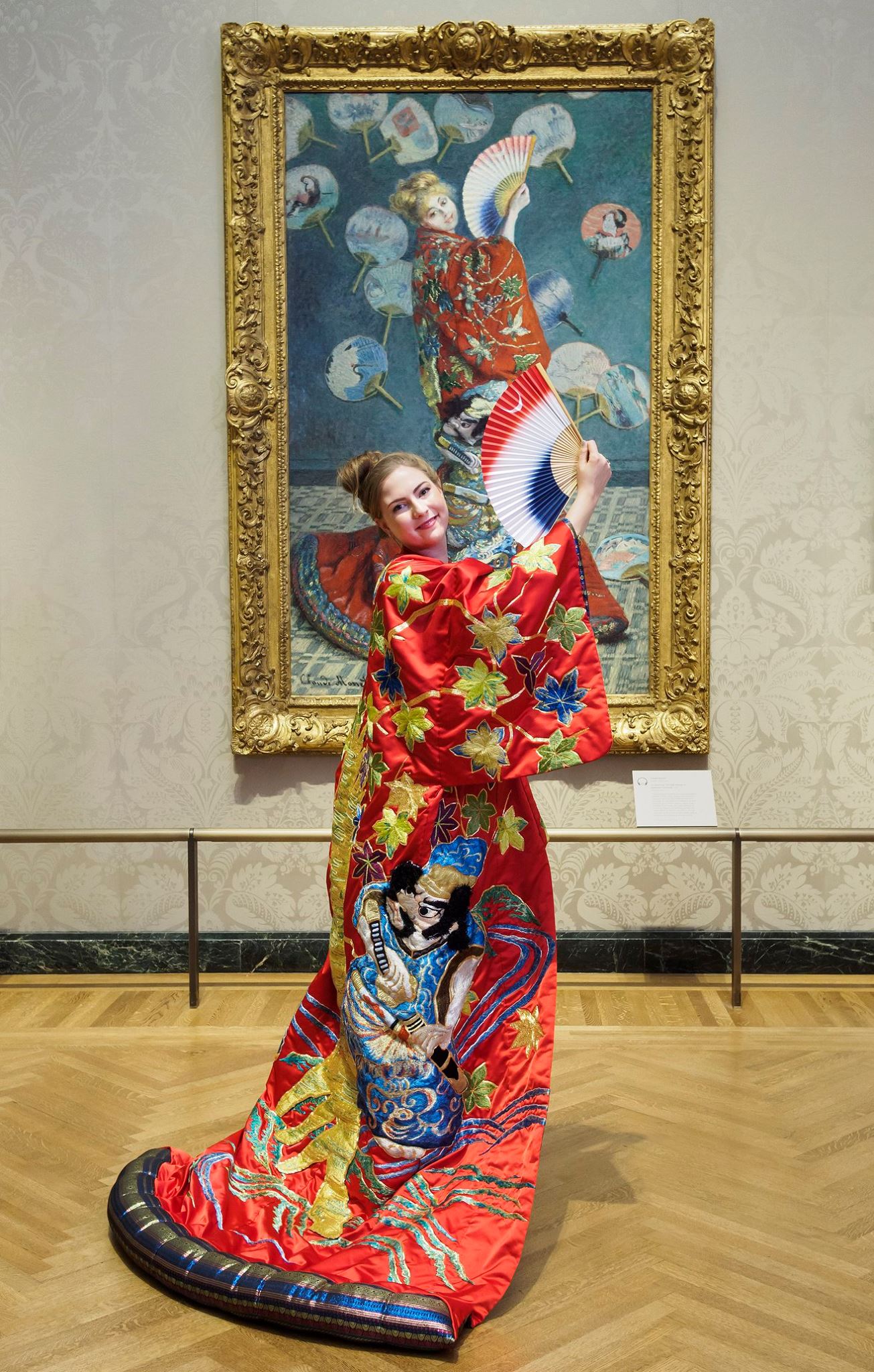
While everyone was focused on South Carolina’s vote last night on flying the Confederate flag on state property, another controversy over racial/ethnic displays was playing out at a museum in Boston.
The celebrated Museum of Fine Arts reconfigured its “Kimono Wednesday” promotion in which patrons were invited to try on kimonos and pose for photos next to Claude Monet’s “La Japonaise,”the 1876 painting, which depicts Monet’s wife wearing a kimono as a commentary on Parisians’ craze for all things Japanese, the Boston Globe said.
The museum’s month-long promotion was intended to transform visitors into Monet’s muse, the museum said on its Facebook page.
But some people were not amused.
“This is honestly one of the most vilely racist things I’ve ever seen,” one said on Facebook, as a social networking pushback gained steam. “White folks wanting to play dress up and feel Japanese? Please, don’t. Japan isn’t your mystical fantasy playground for you to go galavanting around in a dead Frenchman’s orientalist vision of Japan.”
At a demonstration earlier this month protesters claimed the museum was perpetuating racist stereotypes by presenting Asian culture “as quintessentially exotic.”
“Asian-Americans in this country have a history of being mis- or underrepresented — they’re either completely absent from the media or only depicted as Kung Fu, exoticized, mystical, dragon ladies, prostitutes, or what have you,” said Christina Wang, 29, who held a sign that read, “Try on the kimono, learn what it’s like to be a racist imperialist !!!today!!!” She added: “This event that the MFA is putting on — asking the public to come don the kimono — is part of that legacy.”
The museum backed off and at last evening’s event, it invited visitors to touch the kimono, but not actually try it on, the Globe reports.
It said the mood was “slightly tense.”
Staging a personal counter-protest, Timothy Nagaoka, 37, who teaches Japanese to fourth and fifth graders in Boston public schools, said he was upset that the MFA is no longer letting guests try on the kimonos.
“I had marked my calendar,” he said. “I think it would have been a great opportunity for my students.”
Wearing a yukata, which he described as a cotton summer kimono for men, Nagaoka held a variety of signs. “Wearing a kimono does not make me a racist or an imperialist,” one read. Another quoted Taylor Swift: “Haters gonna hate, hate, hate.”
“Any attention on Japan is a good thing,” he said, explaining his support for the original program. “This painting celebrates the fascination that French Impressionists had.”
At one point, Nagaoka and the group opposing the event, along with other visitors, gathered in a doorway of the gallery, and the conversation became slightly heated. “You don’t understand anything about art,” one man said as he passed through. To which someone responded, “Check your privilege.”
A woman who wanted people to question the role of the kimono in Monet’s work said she was told to “keep quiet” by a security guard.
